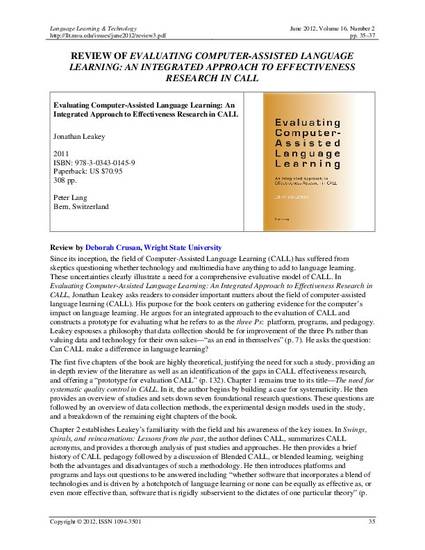
Since its inception, the field of Computer-Assisted Language Learning (CALL) has suffered from skeptics questioning whether technology and multimedia have anything to add to language learning. These uncertainties clearly illustrate a need for a comprehensive evaluative model of CALL. In Evaluating Computer-Assisted Language Learning: An Integrated Approach to Effectiveness Research in CALL, Jonathan Leakey asks readers to consider important matters about the field of computer-assisted language learning (CALL). His purpose for the book centers on gathering evidence for the computer’s impact on language learning. He argues for an integrated approach to the evaluation of CALL and constructs a prototype for evaluating what he refers to as the three Ps: platform, programs, and pedagogy. Leakey espouses a philosophy that data collection should be for improvement of the three Ps rather than valuing data and technology for their own sakes—“as an end in themselves” (p. 7). He asks the question: Can CALL make a difference in language learning?
Available at: http://works.bepress.com/deborah-crusan/15/
